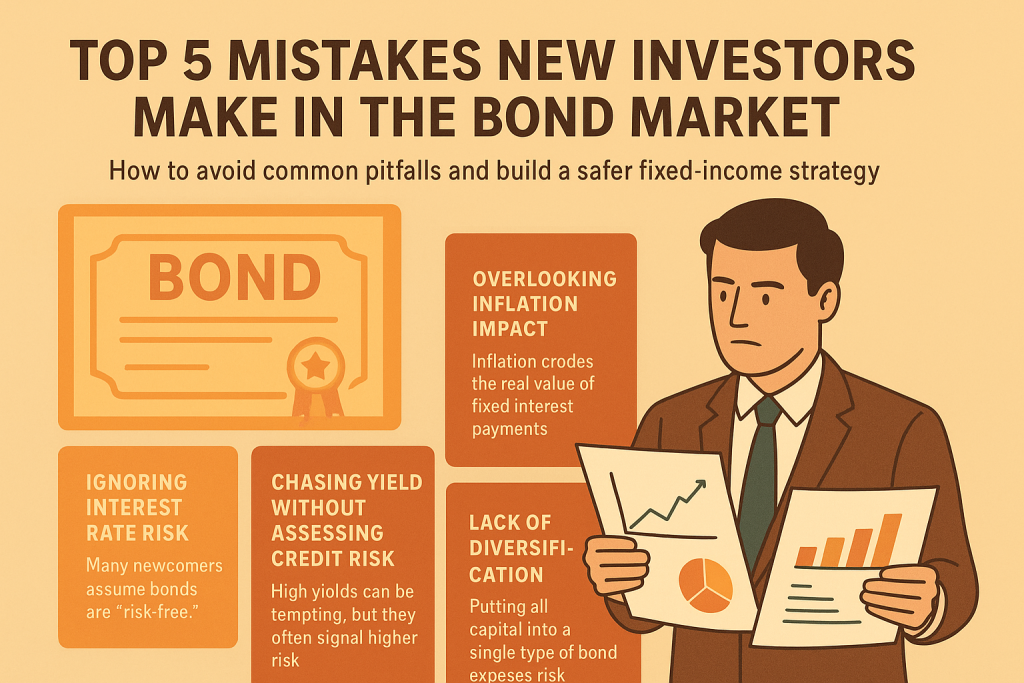The bond market is often considered a “safe haven” for investors seeking stability and predictable income. Yet, for beginners, navigating this space can be just as challenging as trading stocks or crypto. While bonds may seem straightforward—lend money, earn interest, get repaid—the reality is more complex. Many first-time investors fall into avoidable traps that can reduce returns or increase risks.
Here are the five most common mistakes new investors make in the bond market—and how to avoid them.
1. Ignoring Interest Rate Risk
Many newcomers assume bonds are “risk-free.” In fact, bond prices move inversely to interest rates. When central banks raise rates, the value of existing bonds falls.
Tip: Always check the duration of a bond portfolio—longer durations mean higher sensitivity to rate changes.
2. Chasing Yield Without Assessing Credit Risk
High yields can be tempting, but they often signal higher risk. Junk bonds, for example, may default more frequently. Beginners sometimes confuse yield with guaranteed income.
Tip: Balance your portfolio with a mix of government, municipal, and high-grade corporate bonds before exploring higher-risk assets.
3. Overlooking Inflation Impact
Inflation erodes the real value of fixed interest payments. New investors often underestimate how rising consumer prices can eat into their returns.
Tip: Consider inflation-protected securities (like U.S. TIPS or similar instruments globally) to hedge against this risk.
4. Lack of Diversification
Putting all capital into a single type of bond—say, only long-term Treasuries—exposes investors to unnecessary concentration risk.
Tip: Diversify across issuers, maturities, sectors, and geographies. A balanced bond portfolio reduces volatility.
5. Forgetting Liquidity Needs
Some bonds are harder to sell before maturity. New investors sometimes lock up funds without realizing they may need cash earlier.
Tip: Align bond maturities with your financial goals. For short-term needs, stick to more liquid instruments like Treasury bills or bond ETFs.
Bonds remain a crucial tool for wealth preservation and income generation, but like any investment, they require knowledge and strategy. By avoiding these five common mistakes—misjudging interest rates, chasing risky yields, ignoring inflation, neglecting diversification, and overlooking liquidity—new investors can build stronger, more resilient portfolios.
The bond market may not promise quick wins, but with patience and discipline, it can offer something far more valuable: long-term financial stability.


